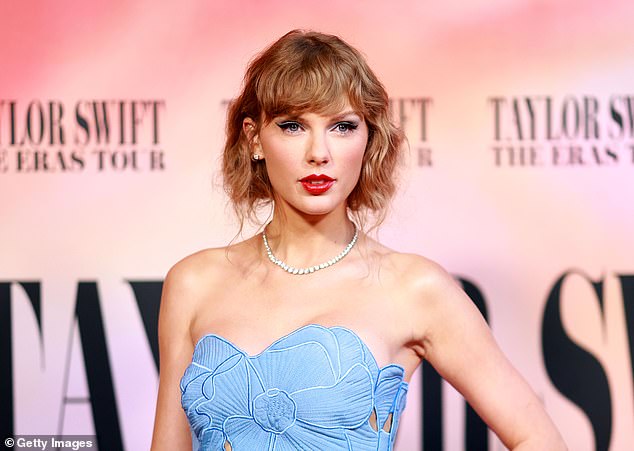ALEX BRUMMER: Fear that the music will stop because of AI
Here’s an admission. As much as I enjoy listening to the music quiz Counterpoint, expertly presented by Paul Gambaccini, most of the questions are outside my comfort zone.
You can’t help but be aware of the huge contribution that British artists, songwriters, composers, producers and shows like X Factor make to Britain’s thriving creative sector.
If there is any regret, it is that our recording, retail and royalty funds – EMI, HMV and most recently Hipgnosis – as listed companies have not covered themselves in glory.
Under pressure: Record companies are not averse to using new technology to improve current recordings and revive long-forgotten catalogs
Nevertheless, according to the sector’s latest report, the sector generates £4 billion in exports, and contributes £6.7 billion in gross value added to the economy.
Good things are happening. Songwriting superstar Taylor Swift has chosen to use a revived EMI label to distribute much of her output.
Amid a vinyl boom, HMV is back on Oxford Street in London’s West End. The Brit School in Croydon, home to Adele and others, is expanding with a second home in Bradford as the country continues to develop.
Amid the optimism, there are enormous threats on the horizon. It took the music industry many years to combat piracy and enforce copyrights for artists, writers, producers and record labels.
The biggest online platforms Spotify, Apple et al pay their dues and music creators are duly rewarded for downloads.
The upstart Tik Tok is not only twisting the minds of young people with political samizdat propaganda, but is now challenging the economy of Tin Pan Alley by refusing to pay its fees.

Mega action: Lucian Grainge removes the music and videos of hundreds of artists, including Tik Tok megastars Taylor Swift, Abba and Harry Styles
British impresario Lucian Grainge, CEO of the world’s largest music group Universal, throws down the gauntlet.
He removes the music and videos of hundreds of artists, including Tik Tok megastars Taylor Swift, Abba and Harry Styles, causing a social media firestorm. His firm Universal Music Group unleashed a tirade against Tik Tok, accusing the platform of bullying and harassment.
It is suspected that Tik Tok users are unaware that the outlet is controlled by Beijing-based ByteDance and that it has no democratic and corporate accountability.
Equally serious is the incursion of AI and the willingness of Rishi Sunak’s government to fall under the steamroller of Silicon Valley.
Record companies are not averse to using new technology to improve current recordings and revive long-forgotten catalogues. The Beatles’ remastered recording Now And Then, which flew off the shelves, could not have been created without AI.
In the wrong hands, fakers can use AI to drive a carriage and horses through copyright and artistry by imitating songs, music and voices, depriving creative livelihoods and national income. The music industry is determined to uphold songwriters’ rights to embedded royalties, recordings and video rights.
Under pressure from big tech, the government plans to give AI proponents a free ride.
The current proposals concern an opt-in strategy. Artists and producers – ranging from the biggest stars to rock groups honing their skills in the local pub or classical musicians – will need to obtain a license to protect their AI.
Any unauthorized material can be copied, distorted, or simply stolen. This approach would put pressure on artists to wrap themselves in bureaucracy and costs to protect what is already theirs.
Culture Minister Lucy Frazer is said to be sympathetic to the objections of British music makers. Things are seen differently in Downing Street.
Last year, Microsoft was deemed a public enemy when the company’s president, Brad Smith, took to the airwaves to call out a decision by the Competition and Markets Authority to block a takeover of gaming company Activision Blizzard. ‘darkest day’ for business in Britain. for four decades.
Just a few months later, Microsoft’s boss Satya Nadella pledged to invest £2.5 billion in an AI facility in Britain after a flying visit.
Similarly, Alphabet plans to add an £800 million data center to its already substantial commitment to a campus at Kings Cross in London.
Silicon Valley is campaigning against legal or copyright restrictions on AI, which hinder freedom of access to entertainment content on their platforms.
Sunak, entranced by big tech and its investments in Britain, listens. The consequences for the country’s music production, creativity and vision could be potentially disastrous.
Some links in this article may be affiliate links. If you click on it, we may earn a small commission. That helps us fund This Is Money and keep it free to use. We do not write articles to promote products. We do not allow a commercial relationship to compromise our editorial independence.

